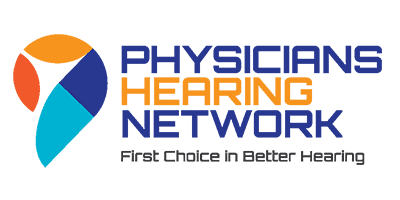Unraveling the Connection Between Hearing Loss and Dementia: How Hearing Aids Can Make a Difference

As we age, our bodies undergo various changes, and some of these changes may impact our overall well-being. One such connection that has gained significant attention in recent years is the link between hearing loss and dementia. Researchers have discovered compelling evidence suggesting that untreated hearing loss can potentially contribute to cognitive decline and increase the risk of developing dementia. However, there is hope on the horizon, as studies also indicate that hearing aids can play a crucial role in mitigating these risks and improving cognitive function.
The Link Between Hearing Loss and Dementia
Multiple studies have revealed a strong association between hearing loss and cognitive decline, including various forms of dementia such as Alzheimer’s disease. While the exact mechanisms underlying this link are still being investigated, researchers have put forth several theories:
Cognitive Load Hypothesis: When individuals with hearing loss strain to hear and understand speech, their cognitive resources are diverted, leaving fewer mental resources available for other cognitive processes. This increased cognitive load over time may contribute to cognitive decline.
Social Isolation and Depression: Hearing loss often leads to social isolation and a decreased participation in social activities. The resulting feelings of loneliness and depression have been shown to be risk factors for cognitive decline and dementia.
Brain Structure Changes: Hearing loss may lead to structural changes in the brain. The lack of auditory stimulation can cause atrophy in certain areas of the brain responsible for processing sound, language, and cognition. These changes may have cascading effects on cognitive function.
The Role of Hearing Aids in Preserving Cognitive Function:
Fortunately, the use of hearing aids has emerged as a potential solution to mitigate the impact of hearing loss on cognitive health. Here’s how hearing aids can make a positive difference:
Improved Auditory Stimulation: By amplifying sounds and enhancing speech perception, hearing aids provide individuals with hearing loss the opportunity to regain access to auditory information. This stimulation helps keep the brain actively engaged, reducing the cognitive load associated with untreated hearing loss.
Social Engagement and Mental Stimulation: With improved hearing, individuals can better participate in social interactions, conversations, and various activities. Maintaining an active social life and engaging in intellectually stimulating pursuits have been linked to a lower risk of cognitive decline and dementia.
Reduced Risk of Depression and Isolation: Hearing aids can alleviate the feelings of loneliness and depression associated with hearing loss. By facilitating better communication and fostering social connections, individuals are more likely to maintain a healthy and active lifestyle, which can positively impact cognitive health.
Brain Plasticity: Research suggests that hearing aids may help preserve brain plasticity, the brain’s ability to reorganize and form new connections. Regular auditory stimulation provided by hearing aids may help prevent or slow down the structural changes in the brain associated with hearing loss and cognitive decline.
How Primary Care Providers Can Help
For medical clinics who are seeking to offer convenient and comprehensive hearing care, Physicians Hearing Network (PHN) serves as an excellent resource. PHN brings hearing services directly to the point of care, collaborating with healthcare professionals to integrate hearing screenings and solutions into their practice. This innovative approach ensures that patients can receive hearing evaluations and access to hearing aids without the need for separate appointments or referrals. By incorporating hearing services within the existing healthcare framework, PHN promotes early detection of hearing loss, timely intervention, and a seamless continuum of care. The convenience and accessibility offered by PHN empower individuals to address their hearing needs promptly, thereby potentially reducing the impact of hearing loss on cognitive health and overall well-being.
Physicians Hearing Network can serve as an extension of your care team, providing audiology services at the point of care from licensed professionals. Our services are provided at no cost to the practice and generate additional ancillary revenue.
If you would like to see if your practice qualifies, contact us today phnusa.com.










